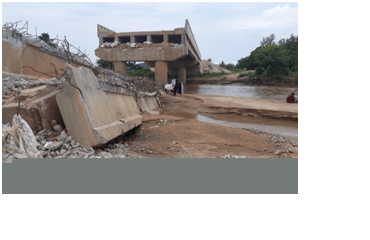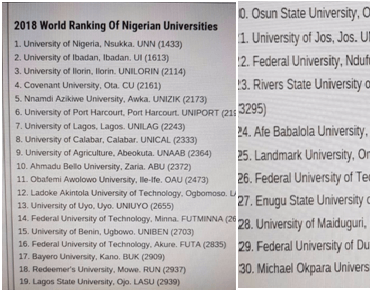UPDATES
Engineering Education & Development
- How does our engineering education in Nigeria prepare graduates to be able to contribute in all the above sectors of the economy?
- Have we measured the real Nigerian engineering contribution to GDP?
- What is the role of NSE & COREN in ensuring that The Nigerian Engineer plays a major role in National development for the benefit of the nation and for his own benefit.
At an event in Lagos in May this year, Mr. Babatunde Fashola, Hon. Minister of PWH asked the audience to raise hand if they have engineers who are looking for job, majority did and he accused us, engineers of not creating an economy to support the graduates coming out of the system, however, my take is are the graduates been prepared to take on the economy – are they ready to come of the university ready and prepared to take on the world? The answer is No!!!
When I graduated several years ago, I told colleagues that the quality of engineering education is received is not worth it, my university, like several others, never had a functional engineering lab that will allow students challenge their minds and be ready for the real world.
“Engineering is the application of scientific knowledge to solving problems in the real world”
Out of the top 30 universities in Nigeria, from the 2018 World Ranking of Universities, only 6 of them are universities of Technology, about another 5 offer engineering courses seriously.
- What is the level of engineering education in Nigeria?
- Do we have a standard set by COREN or NSE for standard of engineering we expect these universities to produce?
- Have we carried out a study of standard of products from our engineering systems?
- Is NSE or COREN involved in curriculum drafting and review, accreditation and approval of courses and universities?
- Have we redefined the expectation and standard in line with current realities?
- Are universities of engineering and polytechnics aligned with industry and requirement for national development?
The President of the Federal Republic of Nigeria, Muhammad Buhari, GCFR, alluded to same thing, in his remarks at the COREN Engineering council meeting stated and I quote “global competitiveness of Nigerian engineers has reduced drastically due to the absence of an updated engineering curriculum, as well of the absence of critical engineering training infrastructure in institutions of learning nationwide. He also stated that Nigeria was in dire need of new engineering technologies to improve the country’s infrastructure development. He noted that the absence of infrastructure in most engineering faculties up to our universities, that complement theoretical teaching with practical knowledge, had created a wide deficit in the quality of Nigeria’s engineering products. According to him, of similar concern was the fact that Nigerians are victims of poor quality of service delivery by poorly trained and unqualified engineers, adding that wherever there was a collapse of infrastructure anywhere in Nigeria, be it building or bridge, everyone is left to count the losses. “Similarly, the absence of up to date engineering curriculum to reflect the current global trends in engineering, has drastically reduced the competitiveness of our engineers. There is a deserving gap between engineers trained in Nigeria and those trained abroad. There is the need for our universities to turn out quality and world grade professionals,” he explained. The president further declared that no society would develop without engineering, noting that it was his desire to see the development of engineering training and practice in Nigeria and through it, a better living for all Nigerians. Buhari emphasized the need to upgrade the quality of engineering practice in Nigeria and concentrate on the application of modern engineering technology in road construction, power, manufacturing, and housing among others. He said, “New engineering technologies are also needed to improve services in agriculture, transportation and power sectors, particularly to revamp our power generation, transmission and distribution, as well as our metering system”
I was chatting with my little boy some days ago and he asked, “Daddy why is everything made in China, why not Nigeria?” I told him China developed their education system and their economy to support manufacturing that is why most corporations in the world, including, from Europe and America with companies like Apple manufacture products in China. About a year ago, I was reviewing the supply of safety items from a Nigerian company, who went as far as China to produce them and I challenged them to look inwards and consider manufacturing some of the items in Nigeria.
I am sure you all know the stories of all the national plans to transform Nigeria in the early 70s with Ajaokuta Steel Plant, the motor manufacturing companies, General Motors, where I worked before it was closed down, Peugeot, VW, Anammco, Fiat Truck Plant, Land Rover Plant etc all closed and not producing.
What happened to all these plants?
What can Engineers do differently to ensure we create a life cycle of engineering development and connection with the real world?



